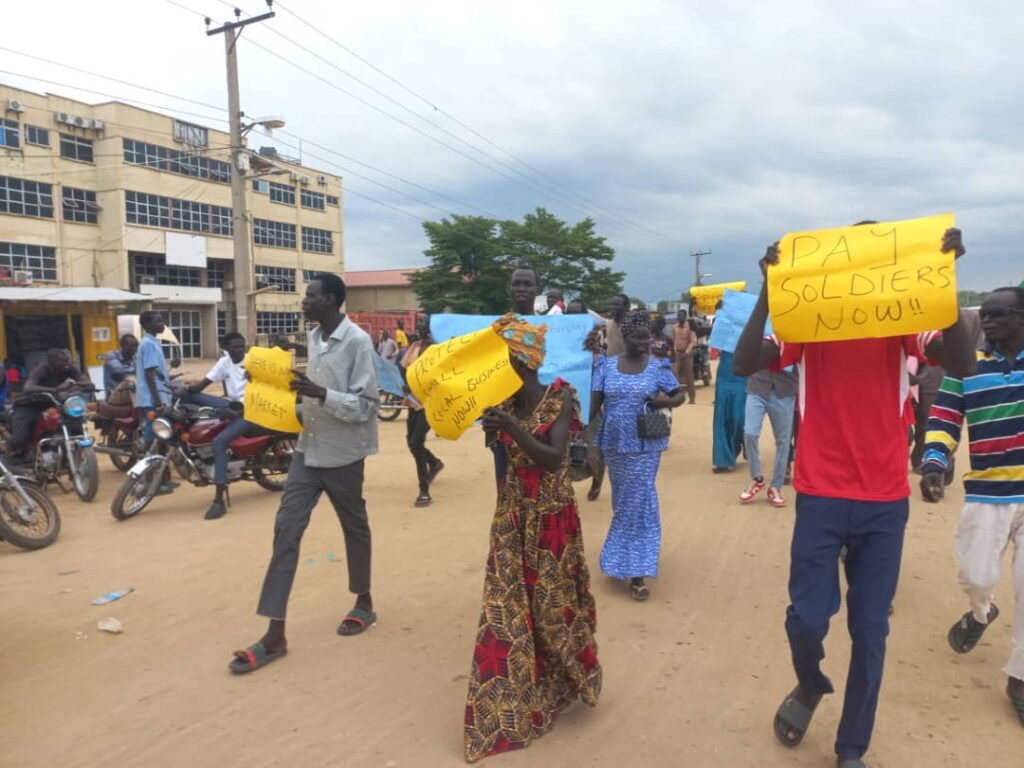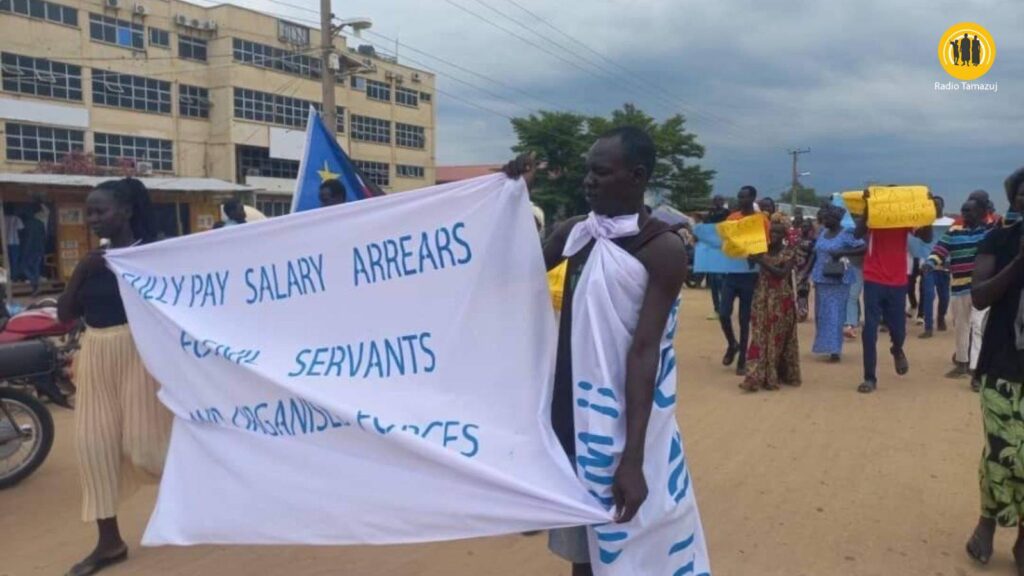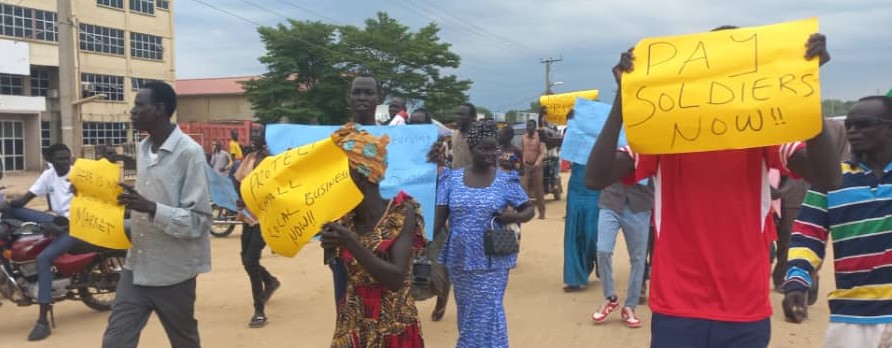Dozens of citizens in Bor town, Jonglei State, resumed protests Monday over the rising cost of living and economic challenges.
South Sudan is facing an economic meltdown as the war in neighbouring Sudan continues to disrupt its oil exports.
Income from oil is the government’s main source of revenue. The landlocked country relies on its northern neighbour’s port to get its oil to the international markets.
The protests, fueled by the rising cost of living and delays in civil servants’ salaries, saw demonstrators brandishing placards and chanting slogans.
Speaking to Radio Tamazuj in Bor town, several protesters expressed frustration with the government’s inadequate response to the rising prices of essential commodities in the market.
“We have suffered enough,” one of the protesters declared. “This time, we want our voices heard. The government in Juba must listen and take action to address the deteriorating economy.”
Another protester emphasized the urgency: “We cannot die in silence. They threatened to shoot us, but we have accepted that risk. There is no better death than standing up for our rights. We are already dying from hunger.”
To amplify their demands, the protesters petitioned the UNIMISS field office in Bor and directly to newly-appointed Governor Majoub Biel Turuk. The petition, addressed to President Salva Kiir, implored for immediate intervention. “We are suffering and starving. We can no longer afford food, medication, or school fees,” the petition reads in part.
The economic pinch has also affected local industries. Salted fish traders find themselves at a standstill; their goods have been blocked in Uganda, and they need help to reach Congolese markets.
Bol Deng Bol, a civil society activist, said that the high cost of living affects all South Sudanese, not just those in Jonglei State. He called on citizens nationwide to join the peaceful protests, asserting that it is their constitutional right.
“This situation has hit everybody hard, and it has affected the common citizens the most, and this is why you see only the common people in the street,” Bol stated. “I very much sympathize with the protesters.”
Security forces in Jonglei refrained from interfering in today’s protests, allowing the protesters to exercise their constitutional rights. Whilst the Transitional Constitution of South Sudan endeavours to protect citizens’ right to freedom of expression, assembly, and peaceful protests, domestic laws such as the National Security Service Act of 2014 continue to limit the enjoyment of the right.






